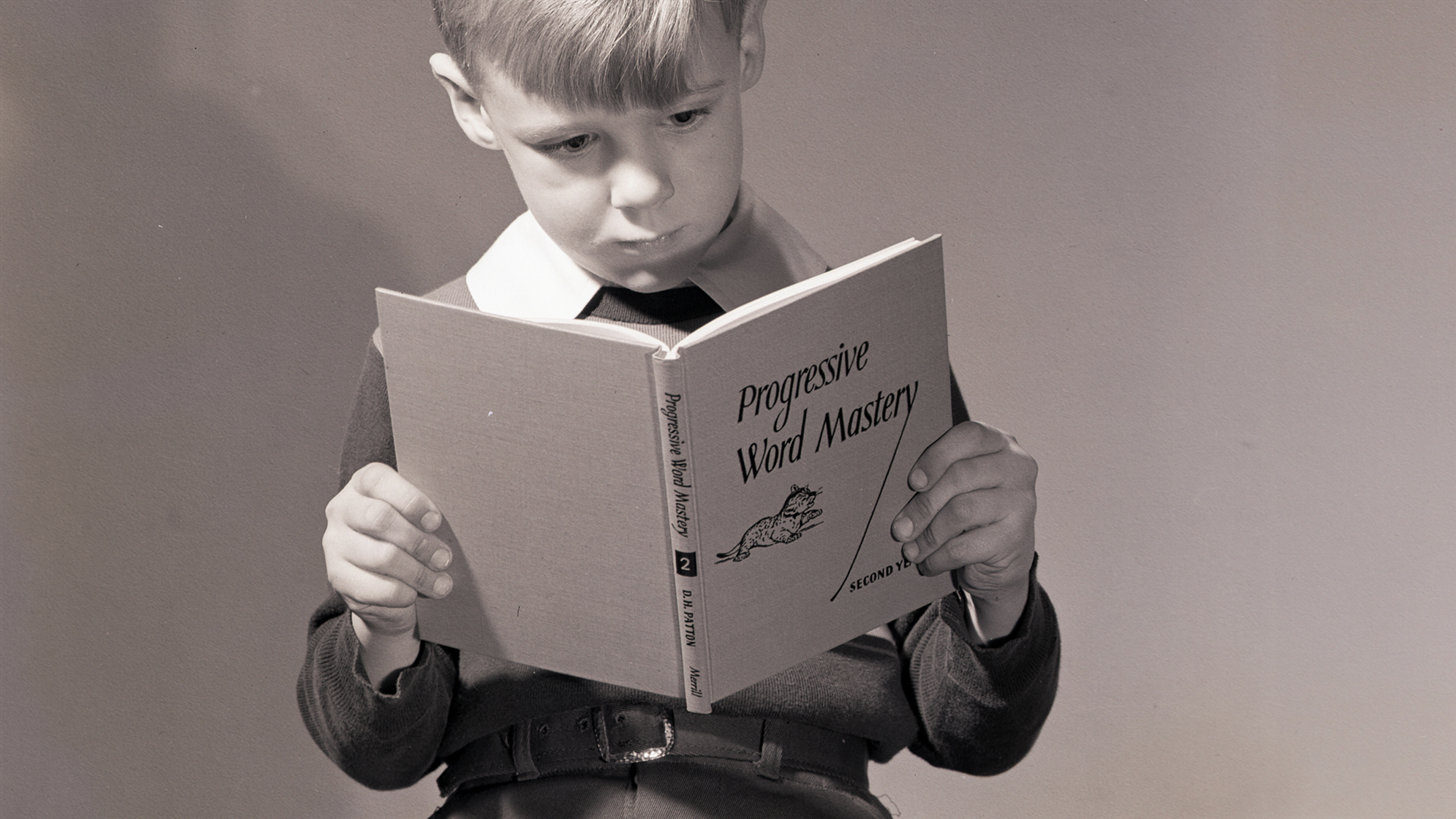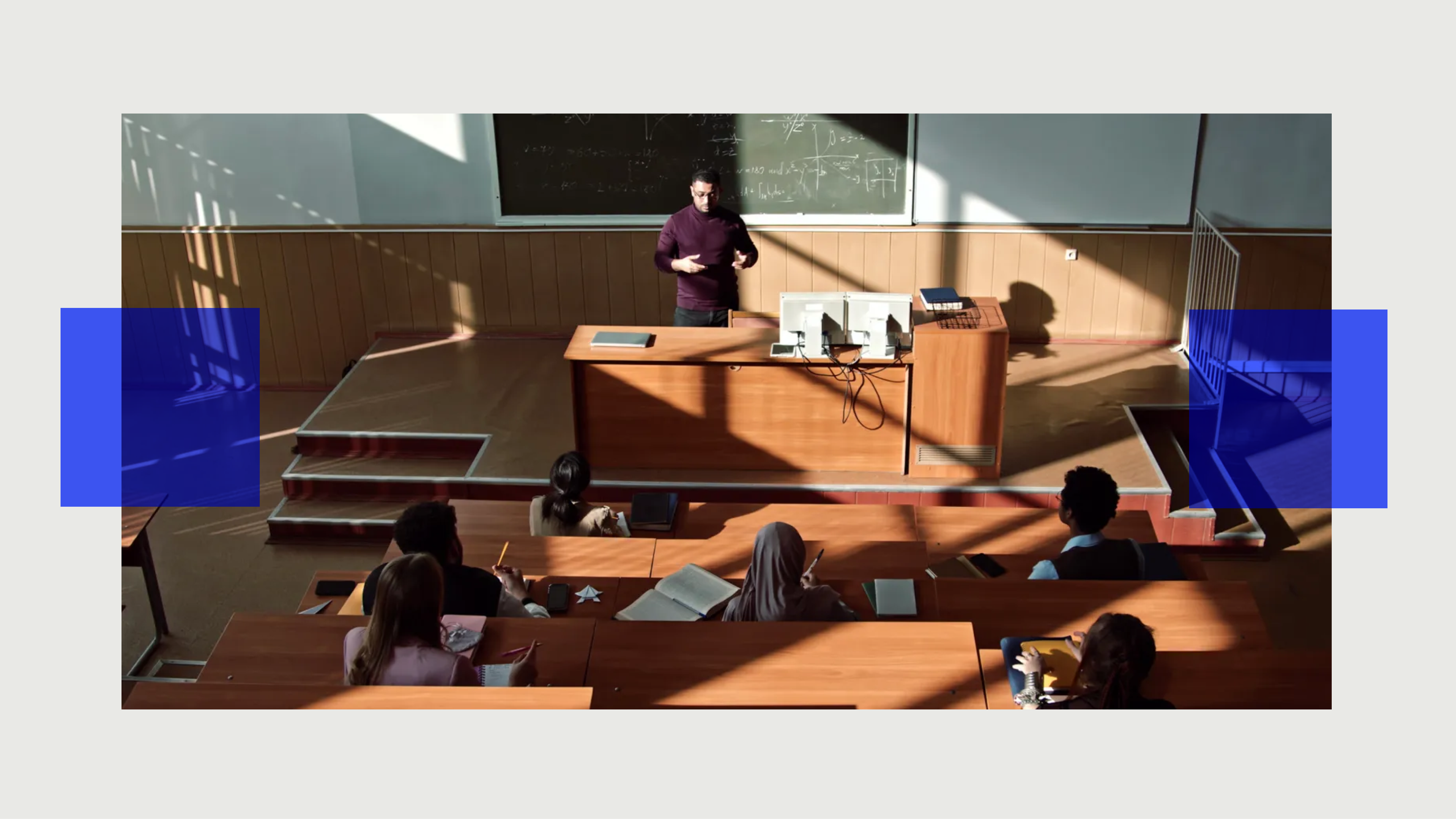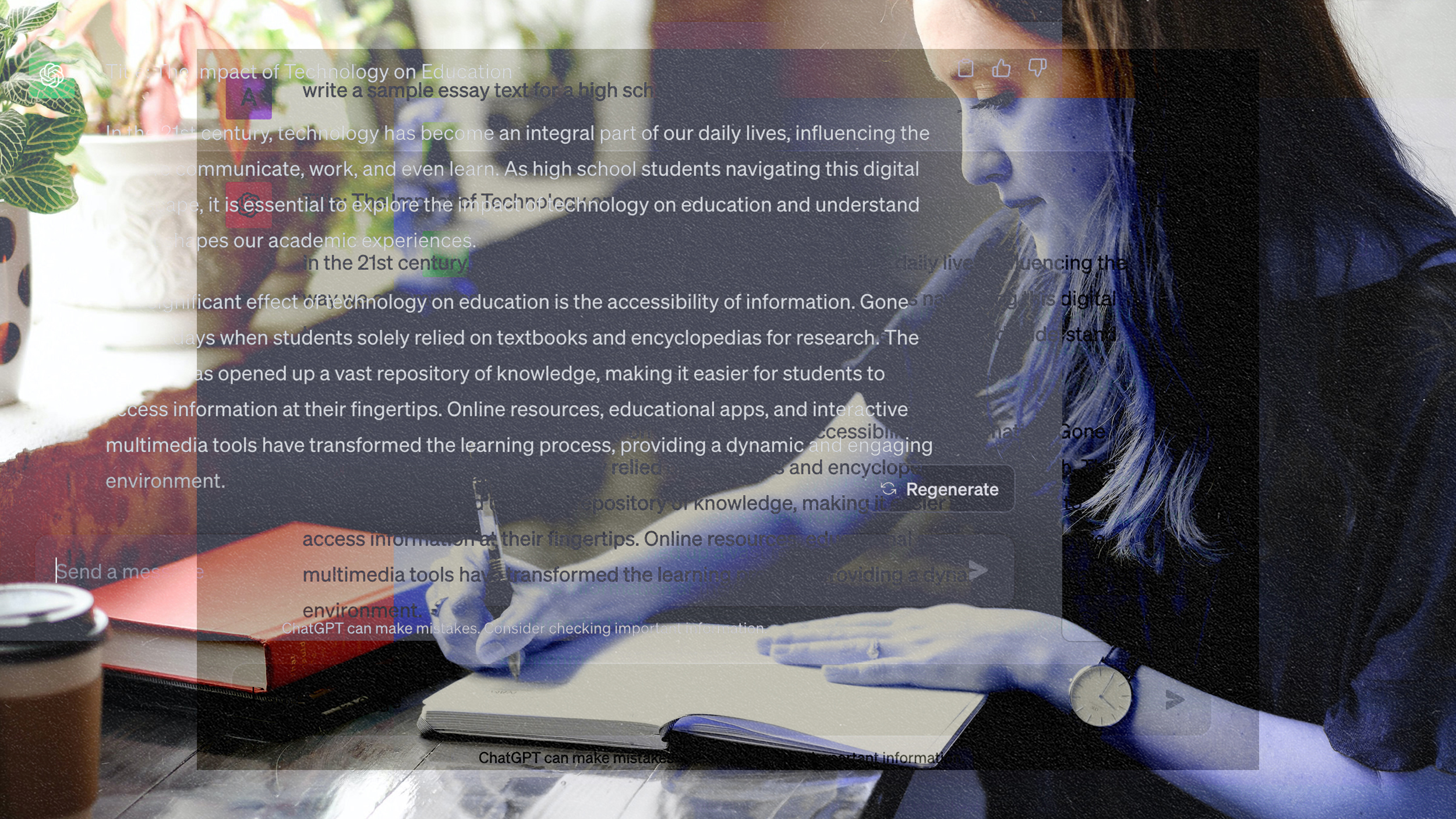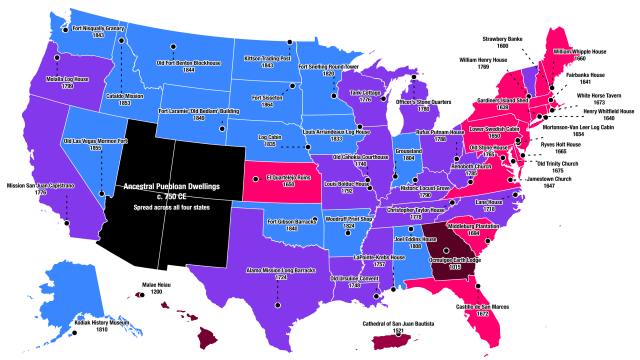Believe in learners. Education that empowers people, empowers society.
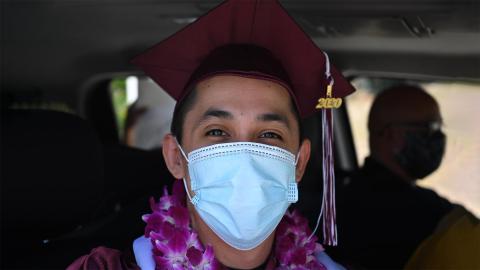
Credit: Robyn Beck / AFP / Getty Images
- Education should fuel lifelong learning that encourages every individual to discover, develop, and deploy their unique aptitudes to improve their life and society.
- To improve education, we need more approaches that are individualized — based on a student’s aptitudes and interests.
- We can make a difference by empowering people to create bottom-up solutions that help individuals unlock their potential.
An inspiring reality of humanity is that every individual has extraordinary potential. Each person has unique talents and abilities independent of external factors like household income or family life. But all too often our outdated notion of what education should look like, and its purpose, prevents learners from discovering their gifts, identifying their aptitudes, and understanding how they can create value in society in their unique way.
The consequences are serious. Consider these facts:
- Student loan debt stands at $1.6 trillion+ — and is growing.
- 61% of graduates would go back and change their major if they could.
- Only a third of students at four-year institutions believe they will graduate with the skills and knowledge to be successful in the workplace
The current approach to postsecondary education is not working for everyone. We shouldn’t be surprised. The two- and four-year degree models that define our postsecondary education system were built for a different time and place, and our failure to innovate in anticipation of learners’ evolving needs and interests has set up millions of people for disappointing life outcomes.
We need to change how we think and act about the role of education, full stop.
This means we stop thinking about education in terms of deeply flawed proxies for learning — like degrees, diplomas, seat time, and credits — and start thinking about the tools that empower outcomes like lifelong learning, demonstrable skills, fulfillment, and service to others. The learner must develop the agency to drive and create their own pathway based on who they are as they push the boundaries of their potential.
Let’s challenge everything we think we know about education and be willing to take risks rather than continuing to tweak at the margins. We can’t afford to fall back on old and flawed assumptions.
Believing in learners means pivoting away from the top-down solutions that have shaped postsecondary education in the past.
At the Charles Koch Foundation, we’re inspired by the exceptional faculty we support at colleges and universities across the nation. These partners generate new ideas and solutions that are applied to society’s most pressing challenges. They produce groundbreaking academic research, and help students develop a passion for learning about and engaging with a diversity of ideas.
Such scholarship and mentorship will continue to be critical pieces of the Foundation’s giving. But we won’t stop there. If our vision is to remove the barriers preventing people from reaching their potential, we have to invest in transforming how our society thinks, talks about, and understands education itself.
That’s why our foundation is using this principle to guide our efforts: We believe in learners.
Believing in learners means pivoting away from the top-down solutions that have shaped postsecondary education in the past. It requires a belief in a multiplicity of bottom-up solutions that fuel passion for lifelong learning and uncover each student’s unique aptitudes, resulting in better outcomes for all learners.
The solutions we’re seeking to support can be characterized by 3 Ds:
Discover. Individuals must discover their unique talents and abilities in order to get the most value from them, both personally and as a member of society. New, innovative solutions and programs need to support learners throughout that discovery process.
Develop. When people begin to understand who they are and the extent of their capabilities, they can begin to turn that knowledge into valued skills. That development must be as rigorous and individual as the person.
Deploy. Learners deploy, or apply, their knowledge and aptitudes in a way that creates value for themselves and for others in society, and in doing so they help society improve.
There is a growing number of social-change entrepreneurs who share the principles and perspective that animate our vision. They are breaking down traditional barriers in education with new, innovative solutions that help all learners reach their potential. These leaders have figured out how to effectively challenge the status-quo and demonstrate that we can do better for students now and for future generations. Our job as a philanthropy is to empower these leaders and innovations to drive real change.
Believing in a one-size-fits-all, standardized approach will not transform education. Believing in and empowering learners will.
Ryan Stowers is executive director of the Charles Koch Foundation, which supports scholars and social entrepreneurs who are leading programs and research that will help every person realize their potential.
